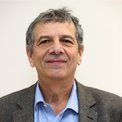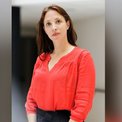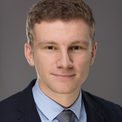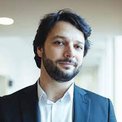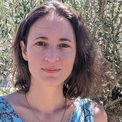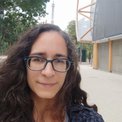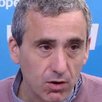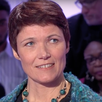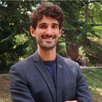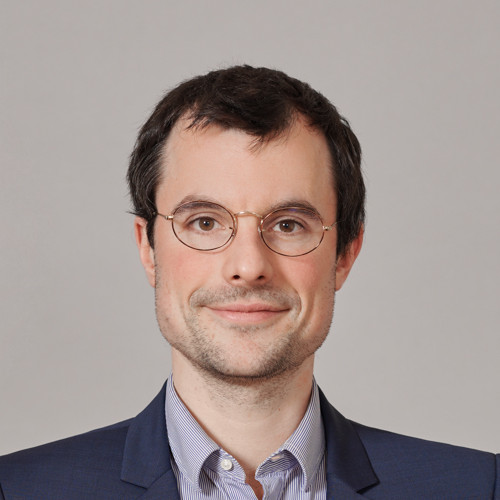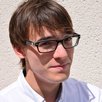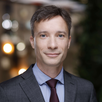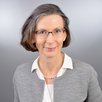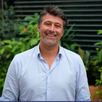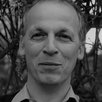About us
The Other Economy offers a free and independent educational platform. Our mission: to shed a new light on the economic system to enable an ecological and fair transition.
Founded in 2022, the non-profit organization The Other Economy is a resource at the service of those acting for an ecological and socially fair transition. We are convinced that understanding the issues is a prerequisite for action.
Our aim is to encourage citizens to take ownership of economics. We want to disseminate a critical vision of the economic system and economic ideas, in order to bring about a new system that “takes care” of people and the planet.
Our Guiding Ideas set out the fundamental principles that guide us.
The Other Economy: a resource at your service!
Contributors to The Other Economy are both theoreticians and practitioners, because we are convinced that economic thinking cannot be detached from economic life, which it influences and instructs in return. The new economy we need to build must be based on an analysis rooted in reality, that of human beings and the nature that surrounds them.
Each and every one of us can take action, at our own level. The Other Economy is a resource for citizen action: it’s up to you to take it, make it yours and use it to drive change, wherever you are, within the economic and social communities to which you belong.
You are free to use (with attribution) all the content we offer. They are licensed under a Creative Commons Attribution-NonCommercial 4.0 International License.
Subscribe to our newsletter to receive a weekly update on the links between economy and ecology.
What can you find on The Other Economy platform?
- Modules: long formats, to understand the essential aspects and deconstruct preconceived ideas on major economic themes and the interactions between the economy and environmental issues.
- Articles: shorter formats presenting some economic “laws”, historical examples, key concepts, public policies, etc.
In addition, we are also present resources (a selection of books, videos, podcasts, etc.) and proposals put forward by various players to implement ecological reconstruction.
Our Guiding Principles
We urgently need to limit the ecological and human disasters we are currently witnessing, by contributing to the ecological transition, which will see activities with no social value and/or damaging to the environment diminish and then disappear, to make way for activities with a future.
The Other Economy aims to contribute to the emergence of a way of thinking and an economic system that takes care of human beings, all living beings, and reconciles social justice, the guarantee of fundamental freedoms and the preservation of resources and natural balances. Our positioning is radical and pragmatic.
More than any other discipline, economics has a decisive influence on public policy and the structuring of community life. But economics is not a neutral discipline. It is based on a necessarily subjective vision of the world, and is explicitly or implicitly accompanied by normative recommendations on how society could function “better”. So that our project can be criticized transparently and overcome ideological reflexes, we need to explicitly present the worldview that underpins our approach. We therefore present here the guiding ideas behind The Other Economy’s approach and summarize our positioning. They are methodological, theoretical and normative, all deeply interrelated dimensions.
Economic life is part of nature and human society
The current ecological catastrophe, and its impact on human beings, must be at the heart of economic thinking.
The economic system can be defined as the component of human societies that includes the production, distribution, exchange (market or not) of goods and services, their consumption, as well as the institutions and actors that organize and participate in these activities.
It relies on the extraction and transformation of natural resources, on the productive capital accumulated over generations, on the availability of a skilled and healthy workforce, and on the existence of legal, social (health, education) and financial (money, finance, taxation) institutions to establish common ground rules. It depends on the regeneration capacity of living organisms and the stability of major planetary balances such as climate.
Economic life is thus embedded in natural environments and human societies, cultural traditions, legal frameworks, power relations and institutions, the fruit of historical evolution.
Economic thinking cannot free itself from these realities without being out of touch. Such is the case with schools of thought that reduce the analysis of such a complex system to the sum of the behavior of individuals seeking to maximize their personal interest. This is also true of all economic analyses that ignore the living, material foundation on which the economy is built.
Limiting social inequalities is an ethical and environmental imperative
Questions of social justice and equity must be integrated into the thinking and conduct of economic policies.
For many economists, the economy is all about efficiency (or wealth creation): making the best use of available resources, reduced to the tandem of capital and labor, to boost production. The question of distribution is often dismissed on the pretext that, as a matter of social justice and equity, it is not economic but purely political. This is to forget that economics is intrinsically political. It also means being blind to the impact of inequalities on the economy and on the possibility of ecological transition.
On the one hand, limiting monetary and social inequalities has an impact on overall demand and on the conditions under which economic activity takes place, by fostering a calmer social climate. A better distribution of income also limits the use of debt and the risk of financial crisis. On the other hand, social justice is an essential condition to accompany the ecological bifurcation. Finally, social cohesion and a sense of security are conducive to innovation and long-term thinking.
The current economic discourse is ill-adapted to the challenges of the 21st century
Riddled with preconceived ideas, economic discourse profoundly structures the organization of human societies.
Economic discourse is the simplified image of the most widespread economic theories of a given era. It is shaped by economists when they popularize their work (i.e., without specifying the assumptions and simplifications underlying their theories), but also and above all by the actors who benefit from it (political decision-makers, business leaders, professional organizations, opinion-makers, etc.), who draw from this work the arguments serving their interests, which are then adorned with a scientific foundation.
It is characterized by ready-made arguments and general statements that are easily taken up by social actors because of their strong evocative power. These statements then take the form of authoritative arguments that no longer need to be demonstrated.
These assertions have underpinned, and continue to underpin, many economic policy decisions, without their validity or the effectiveness of the resulting policies being proven or questioned.
For several decades now, economic discourse has been stuck on dogmas that not only fail to improve human living conditions, but also endanger us and lock us into a mode of operation that is ill-adapted to planetary limits. That’s why it’s so important to change it.
Economic thinking requires pedagogy, a broad viewpoint and interdisciplinarity
Thinking about the economy means not getting bogged down in expert battles and opaque mathematical formalism, which confiscate the debate on economic policies.
We need to look at the bigger picture, to distinguish the essential factors and avoid getting lost in technical debates. Economic systems are far too complex to be properly and usefully understood in every detail.
Pedagogy must also be a structuring dimension of any discussion on the economy. The mathematical formalism widely used by many economists runs the risk of confining the debate on economic issues to those who know how to read equations. Behind these equations lie hypotheses that reflect values, a vision of the world that is in no way neutral, and which must be explained and discussed.
Finally, economic thinking must be informed by other disciplines (life and earth sciences and the humanities), otherwise it will become absurd and dangerous when applied to public policy.
These three methodological principles are necessary to properly inform public and private decision-making, and to enable citizens to take ownership of the issues and participate in debates on major economic orientations.
Integrating nature and people into our accounting tools to count what really counts
Current accounting tools are not good indicators of social well-being or of the economic system’s compatibility with planetary limits.
Measurement and assessment tools (national accounting and its flagship indicator GDP, cost-benefit analysis, private accounting tools, financial or extra-financial, etc.) structure the representation of economic players. In their current state, they largely ignore the reciprocal impacts of economic, social and environmental activity. In so doing, they blind us and lead us to disaster.
While management tools cannot be dispensed with, they do need to integrate nature and social dimensions into their construction. Economics and society need to stop focusing on GDP and its growth. Public authorities must stop steering public finances with the only compass being the narrowly accounting ratios of public debt and deficit. Accounting for the profitability of companies must no longer ignore their impact on nature and human beings.
We need to focus our efforts on the definition and intelligent use of new descriptive and operational metrics. What we really need is a thorough overhaul of all our public and private steering instruments.
Putting money and finance at the service of the common good
Money and finance are human conventions. They are not neutral, and their role is crucial in the interactions between the physical world and the economic sphere.
The economy depends first and foremost on natural resources and our technical capacity to use them. Without the mobilization of fossil fuels and fertilizers, we would not have experienced the exponential global growth of the last two centuries.
Conversely, money is not consumed and cannot be lacking collectively, as it is created ex nihilo by banks. However, this is no mere veil over the real economy. Money and finance can generate crises or, on the contrary, foster development within physical borders. They are also potential sources of social inequality. So they are not neutral.
Their role is therefore crucial in their interactions with the productive sphere, as well as in the human determinants of the new social and ecological contract we so vitally need.
Mobilize all modes of coordinating economic activities: public action, markets, collective management of the commons, etc.
These different modes of coordination need to be mobilized in complementary ways. It’s dangerous to leave our future in the hands of the market alone, or symmetrically in the hands of public action alone.
Markets, state action, collective management of common goods… each of these modes of economic coordination has its strengths and weaknesses. Their respective places are not determined by supposedly immutable economic laws, but by political decisions and societal choices.
The role of the State is crucial in establishing and enforcing collective rules of the game, guaranteeing social peace and providing the public services needed to live together. The use of companies and the financial system has amply demonstrated its ability to carry out large-scale projects by mobilizing financial capital. If profit is involved in the destruction of Nature, it is because it is not subordinated to social well-being and respect for planetary limits. Now it’s a question of implementing consistent reforms so that this power can be used to accelerate the transition.
At the same time, we need to emphasize the development of the social and solidarity economy (SSE), as well as experiments in managing the commons and new lifestyles to embody economic and social living solutions compatible with human demographics and the planet’s limited resources.
Framing globalization to take account of planetary limits and social floors
The development of trade cannot be the only horizon of globalization.
Globalization is an economic, political, social and cultural process characterized by an increase in the international exchange of goods, services, capital, information and people. While it has enabled some social progress, its overall balance sheet has not been favorable in ecological and social terms.
Furthermore, economic thinking cannot ignore the issues of power, strategic autonomy and the preservation of cultural diversity and wealth. Finally, it can no longer take the consumer’s point of view as the sole criterion, as is the case in economic discourse, but must integrate the worker’s point of view. Instruments to regulate international trade are indispensable, contrary to the dogmatic assertion of the superiority of free trade (in goods, services and capital).
Putting technology at the service of life
While technology is essential to the ecological transition, it must be used with discernment and in the service of human beings and the general interest.
Economists and public authorities see technical progress as one of the main drivers of growth, and promote public policies that support innovation. Paradoxically, progress, equated with technology, is often seen as the solution to ecological disasters, whereas it is technical developments that have multiplied the destructive power of the human species and our production of waste and pollution. In the same way, technology has freed part of humanity from arduous tasks, but has also – sometimes mercilessly – destroyed jobs and lives.
Of course, we’ll need technologies to reduce our consumption, clean up the planet and produce equipment, infrastructure and buildings that are resource-efficient, low-carbon and adapted to ongoing climate change. However, the appeal to technology alone does not stand up to analysis: technology companies, first and foremost in the digital field, are not guided by the general interest but by their own interests and those of their shareholders and customers. More than technology, what we need today is discernment in its use.
Who we are
The Other Economy is a collective adventure: it brings together a number of individuals who share the same values and the same desire to create a common alternative to mainstream economics.
The non-profit The Other Economy was created in 2022. (You can read our articles of association here). The association is made up of a Board of Directors, elected by active members, and members who support the work of The Other Economy. You too can support us. By making a donation, you’ll become a member of The Other Economy, and can get involved if you wish to do so.
Here are our activity and financial reports:
Board of Directors
Alain Grandjean
President, co-founder of The Other Economy
A graduate of Polytechnique and Ensae, with a doctorate in environmental economics, Alain Grandjean is co-founder and partner of Carbone 4, a climate strategy consultancy. He was a member of the French High Council for the Climate (2019-2024) and chaired the Fondation pour la Nature et l’Homme (2019-2023). Long involved in advancing public policy, he has contributed to numerous reports and government commissions on the interactions between economics, finance and ecology. Co-author of several books and articles, he also runs the Chroniques de l’Anthropocène blog.
Amandine Lebreton
Treasurer
An agricultural engineer and graduate of Ensat, Amandine Lebreton worked for 14 years at the Fondation pour la Nature et l’Homme. Today, she is director of the Pacte du pouvoir de vivre, which brings together over 60 organizations and trade unions committed to an ecological, social and democratic society.
Pablo Grandjean
Board member
With a master’s degree in multimedia project management, Pablo Grandjean has worked for various associations in Europe. He is currently in charge of digital communications at Finance Watch.
The team
The Other Economy is an association that currently relies mainly on voluntary work. However, to give us the means to achieve our ambitions, two paid staff are in charge of key activities for the smooth running and development of the association.
Marion Cohen
Director, Co-founder of The Other Economy
A 2003 graduate of Sciences po Paris, she worked for nearly 15 years in environmental NGOs, including a decade at the Fondation pour la Nature et l’Homme. In 2017, she founded MC Conseil to support organizations driving the ecological transition, both in terms of organization and expertise.
Florence Al Talabani
Communications Manager
Florence Al Talabani holds a master’s degree in journalism and has been working for NGOs for nearly 15 years. She was in charge of digital communications for Oxfam France between 2010 and 2015, and was coordinator of the Affaire du Siècle from 2019 to 2021.

Aurélie Millon
Communication and fundraising support
After six years in project management, change management and project management in a consulting firm, Aurélie worked for 12 years with associations, on private fundraising and public communications (Oxfam France, AIDES, Fondation des Femmes). She now works as a freelancer to support more, often complementary, causes.
Contributors
The Other Economy could not exist without the many contributors who have joined us since its inception. These contributors may have written a specific part of the platform’s content, or they may have helped by proofreading, commenting on or improving existing content. Contributing to the platform does not imply having read and agreed with all of the site’s content, but only that they share the fundamental values and principles underlying The Other Economy, as expressed in our Guiding Principles.
Those who contribute to The Other Economy – like the members of the Board of Directors – do so in a personal capacity, and their content does not commit their employers.
Michel Auzet
Agricultural engineer
Expert in agricultural economics and head of a master’s degree in sustainable development at the Institut Catholique de Paris.

Jean-Marc Béguin
General Inspector of Insee
Headed INSEE’s business statistics department for 10 years.
Ollivier Bodin
Economist
Former international civil servant and co-founder of the NGO Greentervention.
Simon Chazel
Independent consultant
Expert in macroeconomic-environmental modeling for the IRIS Initiative.
Antoine Gonthier
Commits decision-makers to a sustainable economy
Co-founder ofEarth on Board, X-Urgence écologique and Campus de la Transition.

Lucie Huang
Degree in economics and public policy
Environmental economics researcher at the Conseil d’Analyse Économique.
Alexandre Joly
Energy transition expert
Head of the Energy Division at Carbone 4, teacher, author of the Sator MOOC Réussir la transition énergétique, co-founder oféclaircie.
Stanislas Jourdan
Monetary policy expert
Associate researcher at the Sustainable Finance Lab, specializing in the greening of central banks.
Julien Marchal
Energy company manager
An engineer from the Ecole Polytechnique, Julien has been a senior civil servant. He is a director of energy companies. Author of Déjouer le populisme – bâtir le contrat social du XXIè siècle.
Mireille Martini
Green finance expert
Former banker (project finance). Works on sustainable finance (expert groups, Climate Bonds Initiative).
Philippe Ramos
Degree in Economics,
Former investment banker, converted to positive-impact media (TV4PLANET and INUA PROD)
Laurence Scialom
Professor of Economics
Paris Nanterre University, member of the ACPR Scientific Council and various NGOs (FNH, Institut Veblen, Terra Nova).
Our supporters
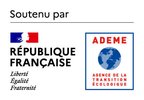
ADEME
ADEME is a public industrial and commercial establishment (EPIC) under the authority of the Ministry of Ecological Transition, Energy, Climate and Risk Prevention and the Ministry of Higher Education and Research.
Committed for 30 years to the fight against climate change and the degradation of resources, ADEME is determined to move the yardsticks to build a more sober and mutually supportive society. We are at the service of all stakeholders (government, businesses, local authorities, citizens) to accelerate the reduction of our energy consumption, develop renewable energies and reduce greenhouse gas emissions.
Whether you are an individual, a company or an institution, you too can support us!
- Individuals: Donate easily to The Other Economy on our secure online platform
- Institutions: The Other Economy is also eligible for grants. If our mission matches the goals you support, let’s talk!
- Company: Make a donation online or by bank transfer, specifying that it is in your company’s name, and don’t hesitate to contact us directly.
/

